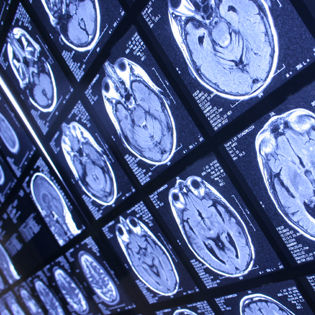New Directions for a Science of Consciousness
- Location
- University House - Room 205
- Dates
- Wednesday 7 December 2022 (12:00-13:30)

Consciousness is what we most intimately know, yet its relationship with the physical world has puzzled scientists and philosophers for centuries.
In this public-engagement event, sponsored by the Royal Institute of Philosophy, we ask three experts to tell us about recent developments in the science and philosophy of consciousness. The event is free and open to all. Some complimentary refreshments will be available after the event.
Free Entry (ticket required)
Programme
12 noon - 1pm: Talks
- Davinia Fernández-Espejo (University of Birmingham): More Than Meets the Eye; Searching for Consciousness After Brain Injury.
- Jack Lyons (University of Glasgow): Phenomenal Consciousness and the Real Problem of Other Minds.
- Heather Browning (University of Southampton): Assessing Animal Sentience.
1-1:30 pm: Q&A Session
1:30 - 3pm Reception with refreshments
Speakers
Davinia Fernández-Espejo. Dr Davinia Fernandez-Espejo is an Associate Professor at the School of Psychology and Centre for Human Brain Health. The main goal of her research is to understand how the brain supports consciousness and what goes wrong for patients to become entirely unaware after severe brain injury. She works to develop diagnostic and prognostic markers that can support decision making in clinical settings, as well as interventions for patients with severe brain injury. Before joining the University of Birmingham, she conducted her research at the Brain and Mind Institute at Western University (Canada), the Department of Clinical Neurosciences at the University of Cambridge (UK), and the School of Medicine at the University of Barcelona (Spain)
Jack Lyons. Jack Lyons is Professor of Philosophy and Chair of Logic and Rhetoric at the University of Glasgow, a post he took up right before the pandemic. His main areas of research are in cognitive science and epistemology and especially areas where they overlap. Among his works are Perception and Basic Beliefs (OUP 2009) and a number of articles addressing the role of conscious experience in perceptual categorisation judgments.
Heather Browning. Heather is a Lecturer in Philosophy at the University of Southampton. She specialises in animal sentience and welfare, and was recently part of the research team who produced a report for DEFRA reviewing the evidence of sentience in cephalopod molluscs and decapod crustaceans, leading to an amendment of the UK's Animal Welfare (Sentience) Act to include their protection. Alongside her academic career, Browning has worked as a zookeeper and animal welfare officer.
Abstracts
Davinia Fernández-Espejo - More Than Meets the Eye; Searching for Consciousness After Brain Injury
We can only infer whether somebody is aware by looking at their behaviour and how they interact with us. But what would happen if you were not capable to control your behaviour to show that you are aware? Patients in a vegetative state are clinically considered to be entirely unaware. And while this is the case for the majority of them, brain imaging has revealed that a subset of these patients are actually, and unexpectedly, aware despite appearing entirely physically unresponsive. I will discuss how we can uncover awareness in unresponsive patients and what current research tells us about the cause of such paradoxical abilities.
Jack Lyons - Phenomenal Consciousness and the Real Problem of Other Minds
The familiar philosophical problem of other minds is a skeptical problem; it’s the problem of how I can be sure anyone else besides me has conscious experiences, given that the only mind I have introspective access to is my own, and since all the relevant behaviour that might serve as third-personal evidence seems producible in an experience-less automaton. Even if we discard these worries as hyperbolic, there is still a “real problem” of other minds deriving from the well known distinction between phenomenal consciousness (roughly, “what-it’s-like-ness”) and access consciousness (reportability, availability to central executive functions). Although access consciousness clearly does something for the organism, and we can therefore acquire evidence that a creature has access consciousness, there is a remaining problem concerning phenomenal consciousness, unless we can specify what it does for the organism. I offer a speculative proposal about the function of phenomenal consciousness, one that would allow us to adduce empirical evidence for or against the claim that a certain class of animals is phenomenally conscious.
Heather Browning - Assessing Animal Sentience
Animal sentience is relevant to public policy and ethical decision-making, and determining which animals are sentient helps us decide which animals to protect and how to treat them. In this talk I will discuss the current best available methods for assessing the sentience of animals, drawing on the framework recently used to evaluate the sentience of cephalopod molluscs and decapod crustaceans for their inclusion under the UK’s Animal Welfare (Sentience) Act 2022.